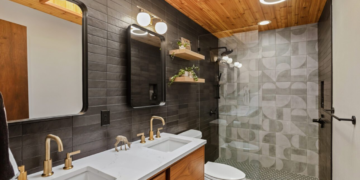The hospitality industry thrives on creativity, innovation, and exceptional guest experiences. But what truly sets a hotel, restaurant, or resort apart from the competition? The answer lies in hospitality concept development—the process of designing and executing a unique, marketable idea that delivers outstanding value to guests.
Whether you’re launching a new hotel, revamping a restaurant, or creating an innovative resort, developing a hospitality concept is the first and most crucial step toward success. Let’s explore what goes into crafting a hospitality concept that stands out in today’s competitive market.
What Is Hospitality Concept Development?
Hospitality concept development refers to the strategic planning and execution of a unique experience that defines a brand in the hospitality sector. It’s more than just opening a hotel or restaurant—it’s about curating a story, atmosphere, and service model that captivates guests and meets market demands.
The Importance of a Unique Hospitality Concept
In an industry where countless hotels, restaurants, and resorts compete for attention, a well-defined concept sets you apart. A strong hospitality concept:
- Builds brand identity and recognition
- Creates a memorable guest experience
- Differentiates from competitors
- Attracts a loyal customer base
Simply put, a great hospitality concept isn’t just about what you offer—it’s about how you make guests feel.
Key Elements of a Successful Hospitality Concept
Crafting a winning hospitality concept requires careful planning. Here are the fundamental components:
Vision and Brand Identity
Your hospitality concept should have a clear vision and mission statement that reflects your brand values. Are you offering luxury? Budget-friendly stays? A themed restaurant experience? Your concept should align with your brand identity and long-term goals.
Target Audience and Market Positioning
Who are you serving? A five-star resort caters to high-end travelers, while a boutique café might attract young professionals and creatives. Defining your audience helps you shape everything from your menu to your interior design.
Location and Design Aesthetic
The location influences your hospitality concept significantly. Whether it’s a beachfront resort, an urban rooftop bar, or a countryside retreat, your design and services must complement the surroundings.
Services, Offerings, and Customer Experience
Your hospitality concept must provide a unique experience that goes beyond the norm. This could include:
- Signature services (e.g., personalized butler service, local culinary experiences)
- Unique amenities (e.g., themed rooms, spa treatments)
- Interactive experiences (e.g., cooking classes, adventure tours)
Remember, every detail contributes to the overall concept—from menu selection to customer service etiquette.
Steps to Developing a Winning Hospitality Concept
Bringing a hospitality concept to life requires a structured approach. Here’s how to get started:
1. Market Research and Trend Analysis
Before developing a concept, study the market. Analyze:
- Competitor offerings and gaps in the industry
- Consumer preferences and emerging hospitality trends
- Local demand and seasonal influences
2. Defining Your Brand Identity
Your brand identity should be reflected in every aspect of your hospitality concept. This includes:
- Logo, colors, and theme
- Brand voice and storytelling
- Core values and mission statement
3. Designing the Guest Experience
Guest experience is the heart of hospitality. Define:
- Customer journey from booking to checkout
- Service expectations and how staff should interact with guests
- Ambiance and atmosphere that align with your concept
4. Operational Planning and Business Strategy
Even the most exciting concepts need a solid operational plan. Address:
- Staffing and training
- Supply chain and inventory management
- Budgeting and financial projections
5. Launch and Continuous Improvement
Once your hospitality concept is live, monitor its performance through:
- Guest feedback and reviews
- Financial metrics and occupancy rates
- Industry benchmarking
Adapt and refine based on market changes and guest preferences.
Trends Shaping the Future of Hospitality Concepts
Sustainability and Eco-Friendly Initiatives
Today’s travelers prioritize eco-conscious stays. Hospitality businesses are integrating:
- Green building designs (e.g., solar energy, recycled materials)
- Waste reduction programs (e.g., minimal plastic use, farm-to-table dining)
- Carbon-neutral operations
Technology Integration in Hospitality
Smart technology is enhancing guest experiences through:
- Contactless check-ins and mobile room keys
- AI-powered customer service (e.g., chatbots, smart assistants)
- Augmented reality (AR) for immersive experiences
Personalization and Experiential Travel
Guests now seek tailored experiences. This includes:
- Custom itineraries based on guest preferences
- Exclusive cultural and adventure experiences
- Personalized dining menus and wellness programs
Conclusion
Developing a successful hospitality concept requires a blend of creativity, strategy, and guest-centric thinking. Whether you’re opening a luxury resort, a boutique hotel, or a trendy café, your concept must offer a unique experience that guests will remember and return to.
By following best practices, staying updated on trends, and continuously refining your approach, you can create a hospitality business that stands out in a competitive market.
For expert guidance on hospitality concept development, check out Hospitality Concept Developments to bring your vision to life.
FAQs
1. What is the most important factor in hospitality concept development?
A strong, unique brand identity and guest experience are the most crucial factors. Your concept should differentiate you from competitors while delivering value to guests.
2. How can I make my hospitality concept stand out?
Focus on authenticity, innovation, and personalized experiences. Understanding your audience and incorporating unique services can help your brand shine.
3. What role does technology play in modern hospitality concepts?
Technology enhances convenience and security. Features like smart rooms, contactless services, and AI-powered customer support are becoming standard in the industry.
4. How do I ensure my hospitality business remains profitable?
Monitor market trends, guest feedback, and operational costs. Adapt your offerings based on demand and maintain high-quality service to encourage repeat customers.
5. What are some common mistakes in hospitality concept development?
- Ignoring market research
- Poor branding and inconsistent messaging
- Failing to adapt to guest expectations
- Overcomplicating the concept instead of focusing on guest experience













